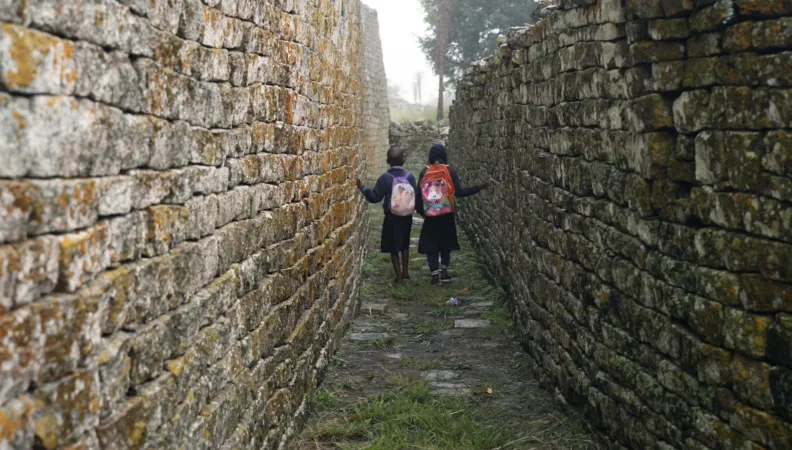Share the page
Exploring History, Heritage and Culture in Southern Africa
Published on

A country’s collective memory is an important part of its identity and evolution. AFD is backing cultural and creative initiatives that play a crucial role in bringing to life countries’ history and heritage – particularly those of Zimbabwe and South Africa. We take a closer look on the eve of “Creation Africa,” in Paris from 6 to 8 October. It’s a forum for creative actors working in the arts, from cinema to virtual reality.
There is at least one thing that links the ruins of a 900 year-old royal city, a digital innovation precinct and the archives of Robben Island where Nelson Mandela was imprisoned.
“These projects use the same approach to tackle questions relating to history, identity and development,” says François Pacquement, AFD’s Manager of History and Strategic Thinking.
By preserving an ancient site, making recent history accessible, and training civil society in the promotion of collective narratives, these three projects illustrate the importance of recognizing the role of the past in our collective present. They are also the manifestations of AFD Group’s strategy for cultural and creative industries (CCI) in Southern Africa.
“These three projects build on the importance of memory and the past for our self-awareness and mastery over our own destiny,” says François Pacquement. “They involve disseminating materials about history that can be used to build a national culture, which is both a condition and expression of autonomous and effective political and economic development.”
An ancient stone city and commercial crossroads
In Zimbabwe, the Government has launched a project to rehabilitate the Great Zimbabwe Monument in the southeast of the country, with AFD’s support.
The site consists of rough granite stone blocks, the ruins of what is generally considered an ancient royal city, dating back to the 11th century. Some €3 million has been invested to develop this World Heritage Site and make it more accessible to the public.
“This issue is especially important in Africa. The often neglected archeological sites and scarce or non-existent archives first of all gave free rein to degrading narratives,” says Pacquement. “Since the end of the 15th century, the colonizers’ failure to understand the place of African populations in their ecosystems has largely contributed to the destruction of the environment, in the name of pseudo-scientific initiatives. We must do away with this outdated vision of Africa as a ‘virgin territory’, full of passive people with no history.”
Further reading - Digitization of the Mayibuye Archives
One of the objectives of the Unboxing Mayibuye - Access to Digital Heritage project is to create reliable and accessible archives and thereby provide digital access to this key historical heritage in South Africa. This project has been launched in partnership with the Robben Island Museum and the French National Audiovisual Institute and is financed by AFD.
These digital documents reconstitute the history of the liberation of South Africa, from the resistance to apartheid in the 1950s to the first democratic elections in 1994.
Using modern technology to dig into the past
“Each society primarily focuses on its own history to understand the past and the present. History thereby also becomes a tool for designing and developing the future,” says the historian specialized in development.
Set up in 2016 in the Braamfontein suburb of Johannesburg, the Tshimologong Digital Innovation Precinct is a digital business incubator, which develops skills for the creation of digital storytelling and content through a close collaboration with universities, companies, government and entrepreneurs.
“This type of project marks a change, opening up a way out of the era of traditional development as we’ve known until now. Historically, AFD’s work focused on infrastructure financing. But it’s also about a new investment in people, along with education and health.”
Création Africa: forum of cultural and creative industries in Paris 6-8 Oct. 2023
“It’s really a new dimension of sustainable development and solidarity-based investment that is taking shape,” says François Pacquement. “Intentions matter as much as tools. This is why these investments for history and its narrative are crucial. Going to work with others means being able to take account of the human place in nature and, at the same time, understand the history of its breakdown. The sustainable development approach is all about reconciliation between human beings, their history and their environment.”
